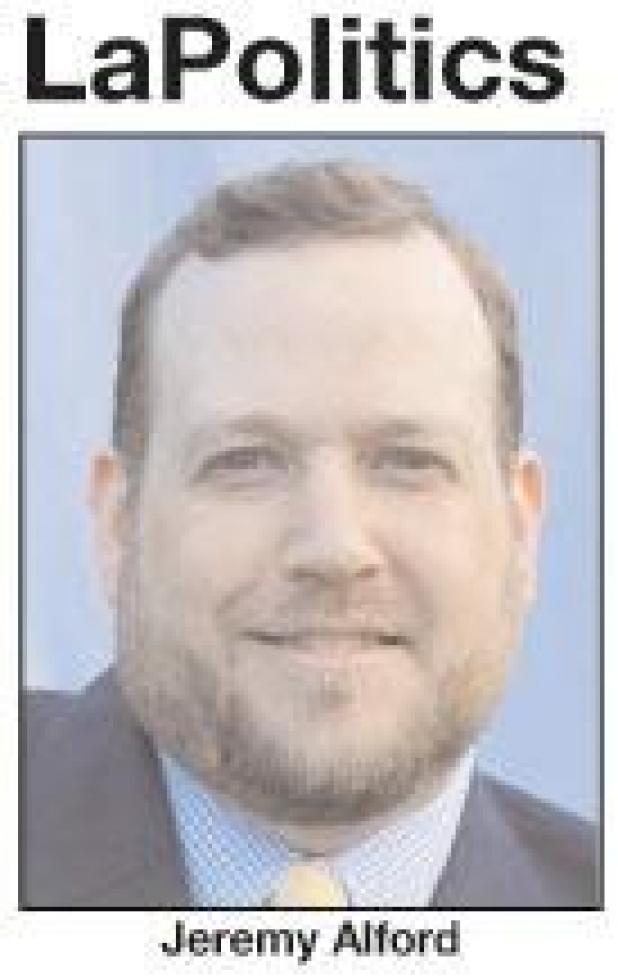
Louisiana Spotlight: Texts and emails are 'next frontier' for public records
The general counsel for the state’s premier newspaper and magazine association believes that the “next frontier for public records law in Louisiana” will involve text messages and emails.
How the text messages of elected officials, appointees and public employees should be treated is a particularly tricky question, said Scott Sternberg, a First Amendment attorney and a partner with Sternberg, Naccari and White in New Orleans.
There’s little to no case law on the subject in Louisiana, he said, which means it will either require litigation or legislation for answers.
“I think we’re going to see more and more exceptions to the public records law being written,” said Sternberg, the general counsel for the Louisiana Press Association.
The issue of email accounts is equally as challenging, especially in light of the growing number of volunteer government employees, like those serving on charter school boards, he said.
“We’re used to having a school board that gets elected and is paid (with public money) and has regular meetings,” Sternberg said, comparing that structure to some charter school boards. “These are doctors and lawyers and friends of the (charter) school that are all using their Gmail accounts to communicate and organize the efforts of the school.”
While technology has certainly improved how people can keep in touch, Sternberg pointed out that cell phones have likewise created an environment where real-time communications are fairly simple — and often overlooked as a public record.
For example, do text messages between members of a public body, drafted when the body is meeting, instantly classify them as public documents?
But to obtain a definitive answer, Sternberg said it would likely take a citizen or reporter being denied public records related to text messages and then that party filing suit against the appropriate arm of government.
Governor remains
issue in PSC race
Gov. John Bel Edwards isn’t on the fall ballot in name, but he is in spirit — at least when it comes to the special election for the Public Service Commission.
Former state Rep. Lenar Whitney of Houma is one of the three candidates in the race and she has been using the governor’s name and likeness as part of her central attack strategy.
One of her campaign’s more recent direct mail pieces took aim at both of her PSC opponents, former state Rep. Damon Baldone of Houma and Dr. Craige Greene of Baton Rouge, who, like Whitney, are Republicans.
The mailer includes a photo of Edwards telling voters, “Just vote for either one of my guys!” It also tags Baldone and Greene for donating money to Edwards, among other things.
Baldone was temporarily appointed to the PSC seat by Edwards this year and he is now running for the permanent job. Greene, meanwhile, has stated publicly that he regretted supporting Edwards in the past.
Political history:
Remembering Jim Garrison
Next month marks the 25th anniversary of the death of New Orleans district attorney Jim Garrison, a man with firm connections to the sprawling conspiracy theories involving the assassination President John F. Kennedy.
According to his New York Times obituary, Garrison “asserted that Lee Harvey Oswald, whom the Warren Commission identified as the lone assassin in the President’s 1963 death, was not the killer and had ‘never fired a shot.’ Announcing that he had ‘solved the assassination,’ Mr. Garrison accused anti-Communist and anti-Castro extremists in the Central Intelligence Agency of plotting the President’s death to thwart an easing of tension with the Soviet Union and Cuba, and to prevent a retreat from Vietnam.”
Garrison did eventually prosecute the case, but the 34-day trial was sometimes portrayed in the mainstream media as a circus that concluded with an acquittal.
At six-foot-six, Garrison was “known for bar hopping along Bourbon Street, often wearing a white dinner jacket,” as The New York Times put it. In 1973, Garrison himself was indicted on federal charges of taking bribes to protect illegal pinball gambling. He defended himself and won, but the trial hurt his campaign for a fourth term.
He lost re-election to Harry Connick Sr., ending a 12-year elected career. He later won a seat in Louisiana’s Fourth Circuit Court of Appeal in 1978, and remained there until he retired at age 70.
Months before his death, he returned to the limelight in Oliver Stone’s movie “JFK,” a narrative based largely on Garrison’s own accounts that grossed $195 million in the box office. He passed away in 1992 at his home in New Orleans.
They said it
“Dead as a doornail.”
—U.S. Sen. John Kennedy, describing the Graham-Cassidy health care bill, in The AP
“(I’m) almost agnostic.”
—Gov. John Bel Edwards, on how he wants the state’s budget and revenue problems fixed, in The AP
For more Louisiana political news, visit www.LaPolitics.com or follow Jeremy Alford on Twitter @LaPoliticsNow.
